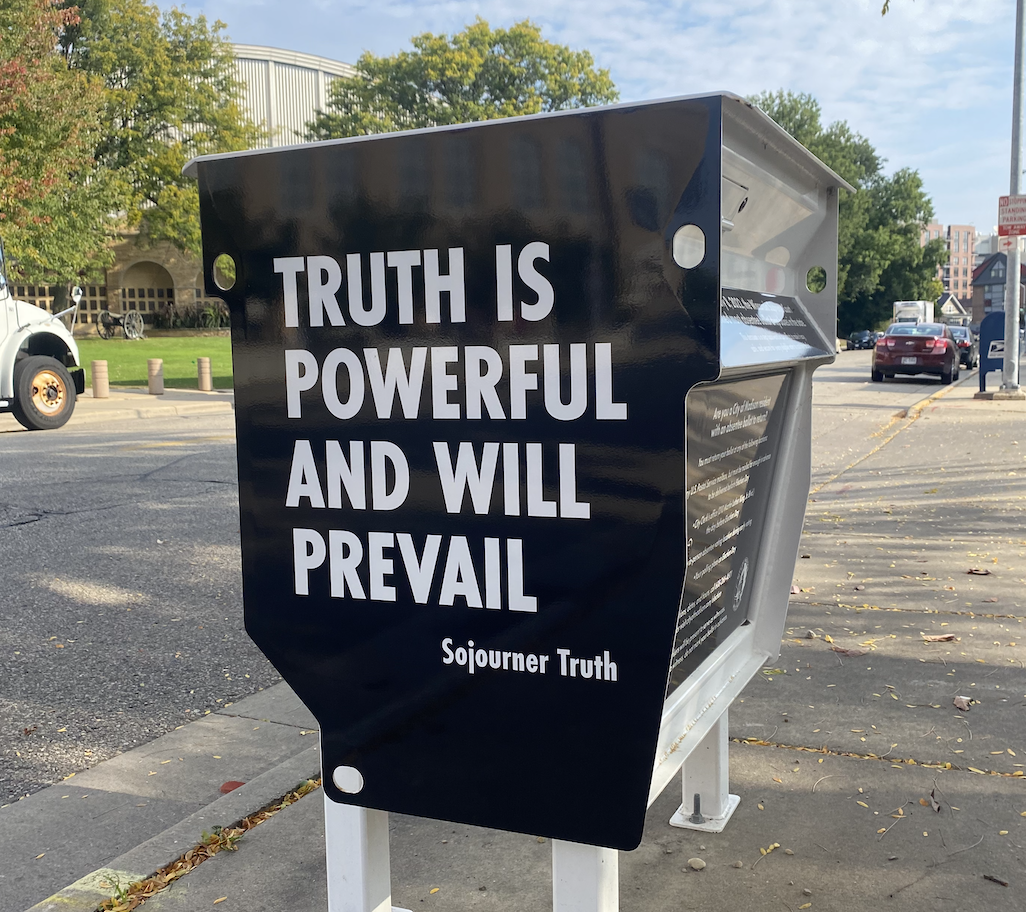In October 1998, a Badger Herald cartoonist, in anticipation of noted affirmative action opponent Ward Connerly’s visit to campus, drew the cartoon seen below. The statement led to a heated confrontation, a front page apology and the opinion editor’s resignation. Below is the opinion editor’s dissent from the Badger Herald Editorial Board’s apology and effective resignation letter.
Mistakes have a tendency to snowball. The Oct. 1 issue of The Badger Herald contained a cartoon many on this campus found to be offensive. It was a mistake for me to have missed the inflammatory nature of the artwork. I made a second mistake on Thursday night, however, after a group of 12 African-American students brought the matter to my attention: I agreed to publish a retraction.
In order to best address the issues brought to light by the cartoon in question, I will endeavor to break down the events as they unfolded.
The cartoon, replicated on this page, portrayed an African-American individual in a light many consider to be less than complimentary. Upon initial viewing, I did not see the latent prejudice displayed by the caricature. While I personally did not make the decision to run the artwork, it was printed to supplement the Point/Counterpoint regarding the recent speech of anti-affirmative action activist Ward Connerly. The cartoon was not given a second examination until late Thursday evening.
That night, 12 African-American students came into the Herald offices requesting to speak with Editor in Chief Jen Carnig and me. I rushed to the Herald office, eager to understand (and hopefully remedy) the situation.
The group was extremely impassioned and, after hearing their concerns, I judged rightly so. In the interests of full disclosure and truthful reporting, I must say I felt embarrassed, shocked and intimidated.
I suggested a letter to the editor as a viable means of addressing the situation. This idea was met with hostility, primarily because, in their eyes, it was our mistake to fix. When questioned about the possibility of a retraction, I told them I did not have the authority and that we’d have to wait for Ms. Carnig.
Ms. Carnig arrived and I explained the situation to her. I, in genuine shock and for fear of being branded a “racist,” agreed to publish a front page retraction of the cartoon, complete with apology. Both the number of complainants and the manner of complaint made me feel there was no other option.
We requested that we be permitted the weekend to compose an adequate retraction. We offered to allow the 12 of them to examine the piece prior to publication. (A move highly atypical in journalism.) They vociferously preferred we write the retraction on the spot, “while it was still fresh in our minds.” Ms. Carnig and I assented. We wrote the 400-word piece and distributed copies. It was to everyone’s satisfaction.
But in the light of day, with a cooler head and calmer heart, I’ve decided the decision to run an apology was and is the wrong one. There are many reasons for my change of heart, hopefully none of them able to be written off as racist.
A newspaper necessitates freedom. It can be indebted to no one — majorities, minorities, readers, advertisers — no one. It answers solely to the truth (arbitrary as it may be). In the case of the opinion section, there is no truth. There are no facts. There are only ideas. And what separates freedom from oppression is the concept that no idea is wrong. No belief is correct or incorrect — different of course, but “right” never.
A paper does not apologize for ideas. It can apologize for offending, but cannot limit its right to offend. And this is why I disagree with this paper’s decision to offer an apology for the cartoon. It was not a quote or misspelling or statistic. Even if an unconscious one, it was an idea and we set a dangerous precedent when we give it less consideration than any other.
Another important issue in this debate is the concept of “intent.” Careful scrutiny of previous works by the artist responsible for Thursday’s cartoon prove his “inflated” characteristics to be generally representative of his style. We can infer he did not mean to offend. Therefore, are we apologizing for an idea? We shouldn’t be. Are we apologizing for racist intent? There wasn’t any.
We appear to be apologizing for interpretation — an element specific to the individual and hardly concrete. An opinion section cannot exist in free form and expression if continually constrained by the possibility of negative interpretation. Not only does this type of thinking violate the First Amendment, it is nearly impossible to act on. Imagine opinions that don’t offend — they are popularly known as facts and belong in a different section.
I do not know how it is to be an African-American. I do not understand the daily slants or omnipresent umbrella of suspicion many African-Americans are forced to live under. I grew up in upper-middle class Illinois — the daughter of two white people, whose ancestors are Caucasian as far back as we dare look. Probably the closest I will ever come to racism was Thursday night.
Before Ms. Carnig arrived, one of the members of the delegation yelled to another, “that’s why I hate them,” and pointed at me. As far as I know, I had said nothing racist or offensive. Do not misunderstand me — I realize he was frustrated and I do not assume he meant to lump me with all white people. But it gave me the smallest taste of being judged, to paraphrase Dr. Martin Luther King Jr., on the color of my skin rather than the content of my character. I sincerely apologize if I have offended anyone in a like manner.
# # # # # # #
All of the aforementioned was written for publication in today’s paper, a dissenting opinion written by the opinion editor. Moments ago, at approximately 10:50 p.m. Sunday, I was informed by the editor in chief that she refuses to publish this piece alongside the “official” Herald response.
You read the editorial today, however, because I am no longer formally affiliated with the paper (thus alleviating their primary concern). This piece doubles as my resignation. Apparently, the choice is between the job I love and the freedom fundamental to open expression. I choose the freedom, but it is unfortunate I was forced the make the call.
The Badger Herald will look on this time as a minor bump in its history, if it looks on it at all. Just another opinion editor in a long line of opinion editors. But by printing this piece today, the paper is sending the message that they do not object to the general subject matter; they merely object to “one of their own” professing it. I am not willing to accept blatant censorship for a title.
Let there be no mistake: I am not resigning over today’s formal apology; I am resigning over the paper’s unwillingness to print this dissenting opinion while I am employed as opinion editor.
I venture that any individual, even a Herald employee, refused the constitutional right to a public forum can hardly judge herself free. We will all compromise at some point during our lives. We will all look at ourselves in the fabled mirror someday with the knowledge we backed down or sold out.
That day will not be tomorrow for me, however. I will not be bullied or cajoled into abandoning that which is essential to liberty, namely, the freedom to have an opinion. It is unfortunate that to generate the very “discourse” we all claim to want, I was forced to lose a job and probably a few friends.
But keep on, comrades. Write letters. Read opinions. Listen to each other. Recognize that there are issues, ideas and problems that need to be addressed. But also recognize that retracting them won’t make them vanish. And neither will crowding out an opinion or two.
Sincerely,
Katie L. Fetting
Ex-Opinion Editor
The Badger Herald







